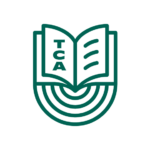At first glance it might appear as if retail work is simple and straightforward. That is not quite the case. A retailer is not simply the person who sells goods to members of the public. They are a vital part of the supply chain. In addition, they are the face-to-face point of contact between the product and its end user. They must be knowledgeable about the products that are on sale and be vigilant to the needs of the customer.
The role of a retail manager is yet more diffuse. They must maximise a store’s profit, ensure customer satisfaction, delegate tasks, prepare the staff with appropriate training while also bearing in mind considerations such as health and safety and store security.
What does retail management involve
Working in retail can be both fast-paced and demanding. Stores generally look for candidates with plenty of experience, thereby creating a Catch-22 for anyone looking for experience. However, a part-time course offers a means of breaking this cycle by training participants in the key areas.
The best way to develop your understanding of retail is to take a course in Retail Management. Participants do not need to have any experience to enroll in a course. You can do a course at certificate, diploma and advanced diploma levels. Naturally, the longer the course, the more training and experience you will receive. However, what Retail Management courses at all levels share is a commitment to providing learners with training in store control and security, recruitment and staff development, inventory control, budget maintenance, health and safety and store operations. Graduates will have developed a greater understanding of the buying process, consumer behaviour, and financial management.
A hugely important aspect of any retailer s job is generating sales. This is often achieved in stores by setting up attention-grabbing visual displays designed to promote consumer awareness of a particular item or product. Participants on a Visual Retail Display course will learn how to create imaginative, dynamic and eye-catching displays through the creative use of colour, lighting and arrangement.
Another more specific learning option is the Certificate in Travel Agency Retail, which is specifically designed for those who would like to work in the travel industry. The course will provide training in areas such as customer service and sales, travel products and travel operations (i. e. issues such as the technology required for working in the industry, the Internet, insurance, finance and handling complaints). Applicants do not need to hold previous academic qualifications.
Why do it?
Retail skills and experience are highly transferable, which means that it will be possible for you to apply the skills you have learned across different markets and just as importantly in different locations.
What comes next?
The retail industry is a dynamic, fast-moving one, and once you have your foot in the door it is possible to develop your career in a number of directions such as merchandising, logistics, market research, buying, PR and general management.
At a glance
Part-time Retail Management courses run for around 14 weeks at certificate level; for 20 24 weeks at diploma level; and for 31 weeks at advanced diploma level. A Certificate in Travel Agency Retail programme will take 16 weeks to complete.















